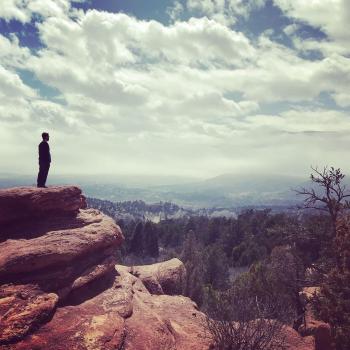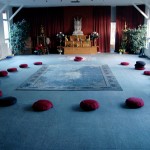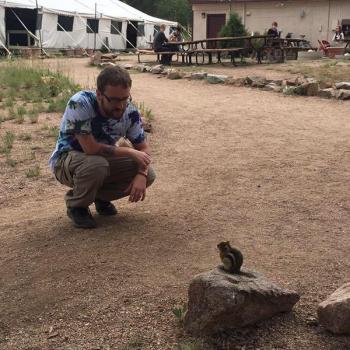I have this friend who said, “I really want to come to your event, but I’m terrible at meditating.”
I want to talk about how hard it is to meditate, because it is very hard. I don’t do it because I’m good at it, I do it because I want to be better at it. So let’s talk about some common obstacles. There’s a list of traditional obstacles to meditation, and they are laziness, agitation, and ill-will.
Laziness
Laziness is just, “I don’t want to do it, I’m not going to do it. I’m going to find other things to do.” Especially at home, it’s really easy to find other things to do. That’s why I like to have events, because it really makes me do it. If I’m inviting other people to do it, I’ve got to do it. If I’m at home trying to meditate, man, I could watch Netflix instead and that sounds really compelling. That’s why laziness is, “I don’t want to do it, so I’m not going to.”
I think of meditation like flossing, because it’s something good that we know we should do, and we don’t do it. It’s really easy, I think, especially in the modern world; there’s so many things to do. Obviously there are many fun things that I could do, but also there’s things around the house that I probably need to get done as well, and those things distract me, don’t they? There’s a million things that could pull us out of it, so that’s laziness.
Agitation
The second one—agitation. I also do struggle with this—that is fidgeting. It’s hard to sit still. Every time sweat appears on me, I want to rub it, so that’s fidgeting, but also itches and things like that. We can sit and wait for those to go away, or we could deal with them as quickly as possible and come back to what we’re doing. I think fidgeting is a big struggle for a lot of people. You have to meditate often, and for a long time for that to get better, I think.
Ill-will
The last one is called ill-will, and that’s not something I struggle with personally, but I’m told a lot of people do. That is just, “I hate meditating.” That’s what ill-will is. It’s just, “I get there and I sit down to do it, and I hate it, and I’m unhappy the whole experience.”
I don’t have that, but I think that people that do have that probably don’t meditate very many times. I don’t know. I’m not sure how one would deal with that.
Not only do we struggle with, “I want to be doing things,” but also maybe like, “Well, I want to be distracted all the time. I don’t want to be present.” If we’ve got things we’re trying really hard to hide from, things we don’t want to face, then that’s going to come up. Some people really freak out when they start meditating. If you’re lying to yourself a lot, or you’re hiding something, or not facing something, it’s going to be tough to keep doing that if you’re being fully present.
This is the practice of learning how to be real, I think.
To touch again on agitation, sometimes I will find that if I’m moving around too much, I’ll just lay down and that’ll help. Beyond that, I’ve found sometimes that I feel fine, and then I sit in meditation and I realize my clothes are pretty uncomfortable. I’m wearing the wrong clothes. I haven’t known that as I was walking around all day, but as soon as I sit down it’s there.. It’s crazy sometimes, I sit for a while and then I think, “Oh, my pants are really tight.”
Sometimes we have to adjust what we’re wearing and things like that. These things are just factors we have to figure out how to deal with. But identifying them and knowing they are present is, in itself, helpful.













